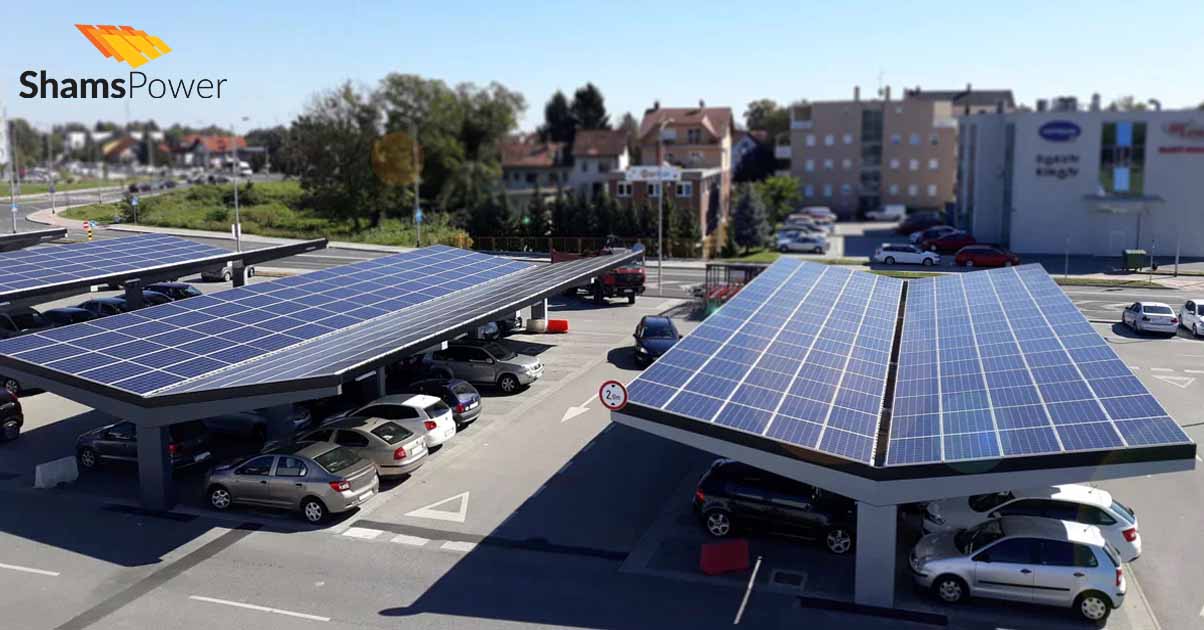Empowering Businesses: The Rise of Carport Solar Installations in Pakistan
In recent years, the global shift towards renewable energy sources has gained momentum, with solar power emerging as a frontrunner in the race towards sustainability. In Pakistan, where energy demands are escalating, innovative solutions are imperative. Carport solar installations have emerged as a game-changer, particularly in the commercial sector. This blog explores the myriad advantages that carport solar installations offer to businesses in Pakistan, paving the way for a brighter and more sustainable future.
Energy Cost Savings
One of the most compelling reasons for businesses in Pakistan to invest in carport solar installations is the potential for significant energy cost savings. With abundant sunlight throughout the year, harnessing solar power is a cost-effective alternative to traditional grid electricity. By installing solar panels on carports, businesses can generate clean energy to meet a substantial portion of their power needs, reducing reliance on the grid and consequently lowering electricity bills.
Stable and Predictable Energy Costs
Unlike conventional energy sources, solar power provides stability and predictability in energy costs. Once a carport solar installation is in place, businesses can enjoy a consistent and predictable energy source for decades. This stability shields companies from the volatility of fossil fuel prices and ensures long-term financial planning becomes more straightforward.
Environmental Impact
Pakistan faces environmental challenges, and the commercial sector has a significant role to play in mitigating climate change. Carport solar installations contribute to reducing the carbon footprint of businesses by generating clean, renewable energy. The environmental benefits of solar power include a decrease in air pollution, lower greenhouse gas emissions, and a smaller reliance on non-renewable resources. This not only aligns with global sustainability goals but also enhances the corporate social responsibility (CSR) profile of businesses.
Enhanced Brand Image and CSR
Adopting carport solar installations is a visible commitment to sustainable practices, making a positive impact on a business's brand image. As consumers become increasingly eco-conscious, they are more likely to support companies that demonstrate a commitment to environmental responsibility. Carport solar installations not only showcase a commitment to reducing carbon emissions but also position the company as a forward-thinking and socially responsible entity.
Government Incentives and Tax Benefits
Governments worldwide, including Pakistan, are recognizing the importance of renewable energy adoption. Various incentives and tax benefits are often offered to businesses investing in solar installations. In Pakistan, the government has introduced policies to encourage the use of solar power, providing financial incentives and tax breaks to companies opting for solar energy solutions. This makes the transition to carport solar installations even more financially attractive for the commercial sector.
Energy Independence
Reliable access to energy is crucial for businesses, and carport solar installations offer a degree of energy independence. By generating electricity on-site, companies can reduce dependence on the grid, minimizing the risk of power outages and ensuring continuous operations. This becomes especially crucial in regions where grid reliability may be a concern.
Optimized Land Use
Land is a valuable resource, and in densely populated areas like Pakistan, optimizing land use is essential. Carport solar installations provide a dual-purpose solution by utilizing existing parking spaces for solar power generation. This innovative approach allows businesses to make the most of available space without compromising on their primary operations.
Reduced Heat Island Effect
Carport solar installations can contribute to mitigating the urban heat island effect by providing shade for parked vehicles. The shading product helps reduce surface temperatures in parking areas, making the environment more comfortable for both employees and visitors. This dual benefit of energy generation and improved comfort adds to the appeal of carport solar installations.
Job Creation
The deployment of carport solar installations in the commercial sector leads to job creation. From manufacturing and installation to maintenance and monitoring, the solar industry offers employment opportunities across various skill levels. This job creation not only supports the local economy but also contributes to the growth of the renewable energy sector in Pakistan.
Technological Advancements
The solar industry is witnessing rapid technological advancements, leading to increased efficiency and reduced costs. Businesses investing in carport solar installations can benefit from these advancements, ensuring that their solar infrastructure remains competitive and cost-effective over time. Continuous improvements in solar technology also contribute to the overall growth and sustainability of the renewable energy sector.
Final thoughts
Carport solar installations represent a progressive and sustainable solution for businesses in Pakistan's commercial sector. From cost savings and environmental benefits to enhanced brand image and job creation, the advantages are multifaceted. As Pakistan strives for energy security and ecological sustainability, embracing carport solar installations emerges as a strategic choice for businesses looking to thrive in a future defined by clean and renewable energy. The sun, it seems, has much more to offer than meets the eye—it's a powerful ally in the pursuit of a greener and more sustainable tomorrow.




.jpg)

Comments
Post a Comment